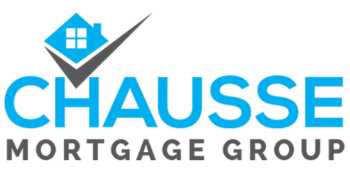
New Video: Fixed Vs. Variable Rate Mortgages 2025
Fixed Vs. Variable Rate Mortgages 2025
Are you considering your next steps with your mortgage? It's important to understand the differences between fixed and variable rate options, especially with fluctuating mortgage rates. In this blog post, we'll break down the complexities of these two types of mortgages and give you essential tips to help you make an informed decision.
Fixed Rate Mortgages
A fixed rate mortgage is a type of home loan where the interest rate remains the same for the entire term of the loan, typically 15 or 30 years. This means that your monthly mortgage payments will also remain the same, providing stability and predictability. This can be beneficial for those on a strict budget or for those who prefer to have a consistent payment every month.
One of the main advantages of a fixed rate mortgage is that you are protected from any potential increases in interest rates. This can provide peace of mind, especially during times of economic uncertainty. However, on the flip side, if interest rates decrease, you will not be able to take advantage of the lower rates unless you refinance your mortgage.
Variable Rate Mortgages
A variable rate mortgage, also known as an adjustable rate mortgage, is a type of home loan where the interest rate can fluctuate over the term of the loan. This means that your monthly mortgage payments can also change, depending on the current interest rate. This type of mortgage often has a lower initial interest rate, making it an attractive option for many home buyers.
The main advantage of a variable rate mortgage is the potential to save money if interest rates decrease. However, there is also the risk of your payments increasing if interest rates rise. This can make budgeting and planning for the future more challenging, especially for those on a fixed income.
Factors to Consider
When deciding between a fixed or variable rate mortgage, it's essential to consider your personal financial situation and your risk tolerance. If you are someone who prefers stability and predictability, a fixed rate mortgage may be the best option for you. On the other hand, if you are comfortable with the possibility of fluctuating payments and are willing to take on more risk, a variable rate mortgage may be a better fit.
It's also crucial to keep an eye on the current market and interest rates. If interest rates are historically low, a fixed rate mortgage may be more beneficial in the long run. However, if interest rates are high, a variable rate mortgage may be a more attractive option.
Refinancing Mortgage Tips
No matter which type of mortgage you choose, it's always a good idea to keep an eye on mortgage rates and consider refinancing if it makes financial sense. Refinancing your mortgage can potentially lower your interest rate, resulting in lower monthly payments and overall savings. It's essential to consult with a mortgage professional to determine if refinancing is the right choice for you.
Book a Call with Justin Chausse
Still unsure about which type of mortgage is right for you? Don't worry, we're here to help! Book a call with Justin Chausse, a mortgage professional who can provide personalized advice and guide you towards making the best decision for your financial future. Visit https://chaussemortgages.ca/appointment/ to schedule your call today.
So whether you're leaning towards a fixed or variable rate mortgage, stay informed and make a decision that works best for your unique situation. Your mortgage is a significant financial commitment, so it's essential to carefully consider your options and consult with a professional before making a decision. Here's to a successful and stress-free mortgage journey in 2025 and beyond!


